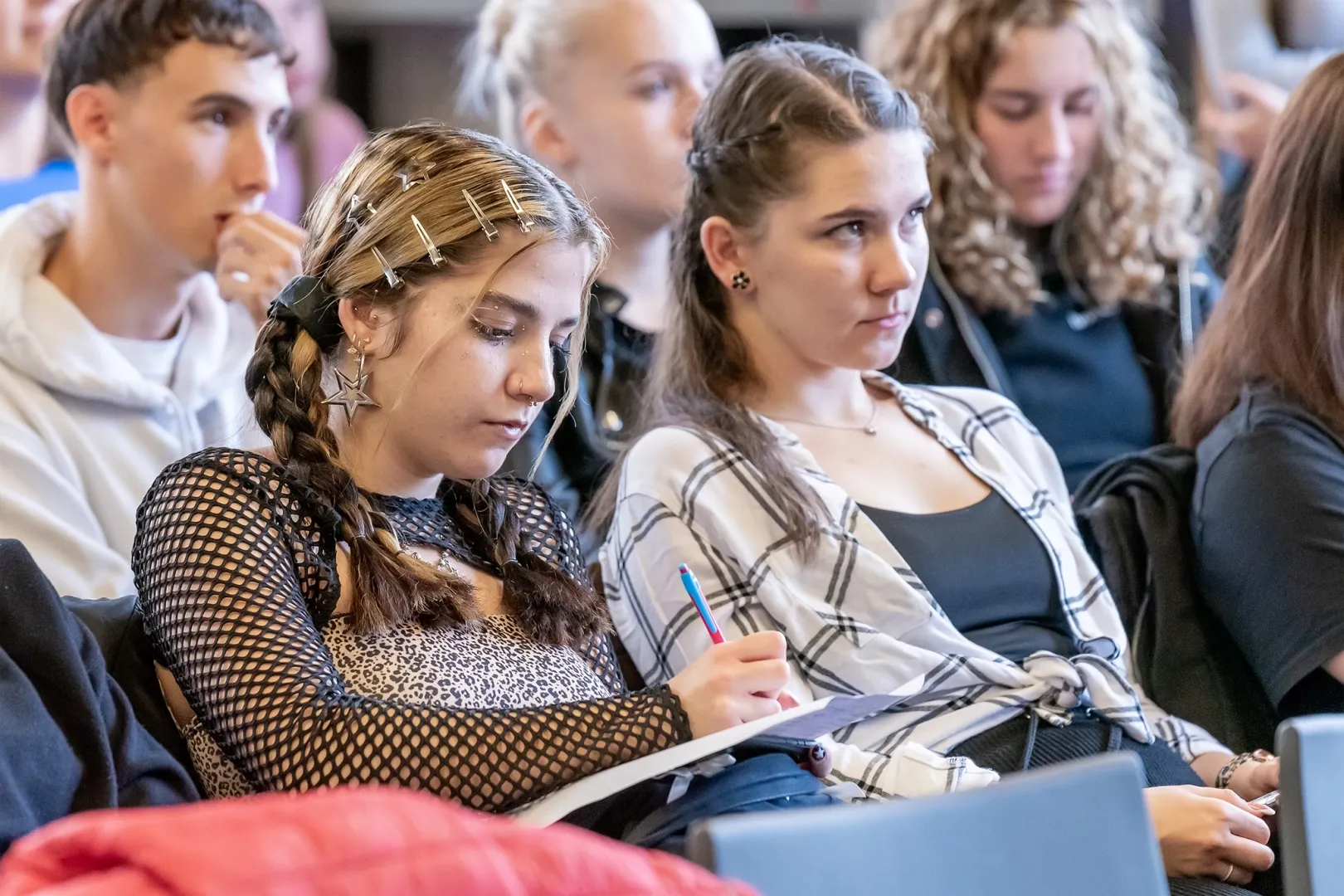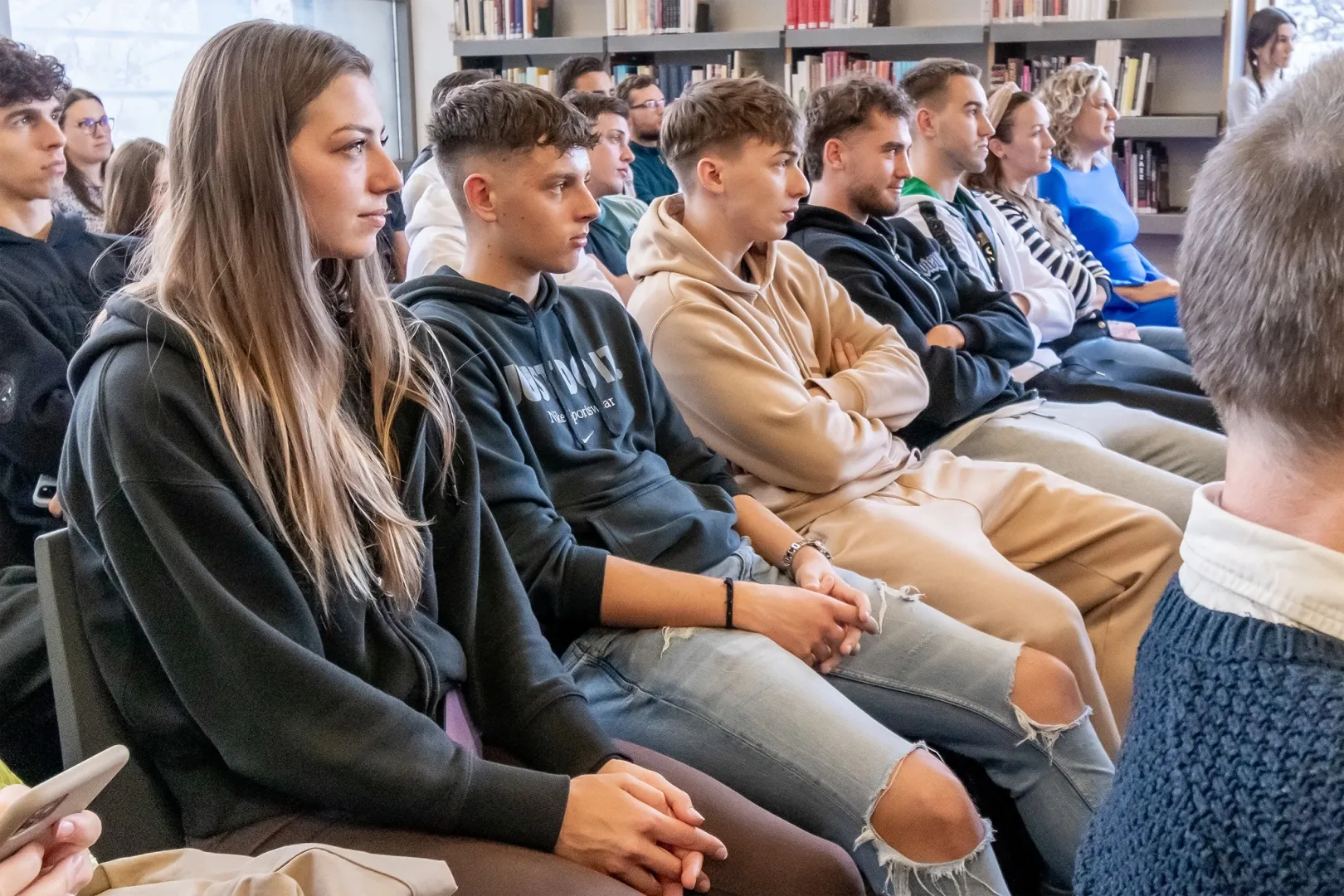Created: 2024.10.21. 14:53
Mahamandaleshwar Swami Gyaneshwar Puri, a monk from the Vishwaguru Deep Ashram Research Centre in India, delivered a lecture to the students of Széchenyi István University on the topic of healthy living, the five-thousand-year-old tradition of Ayurveda healing methods, and the philosophy of yoga.
Széchenyi István University has deep ties with the home of yoga and Ayurveda, India. In addition to offering a four-semester double degree master’s programme in International Economics and Business with Integral University in the northeast of the subcontinent, the institution is building an Indian student community and, at the initiative of the Embassy of India in Hungary, hosts an annual joint practice to celebrate International Day of Yoga.
On 15 October, some of the students of the Kautz Gyula Faculty of Business and Economics and the Faculty of Health and Sports Sciences had the opportunity to learn more about a slice of the country’s ancient culture: the Vice President of the Vishwaguru Deep Ashram Research Centre in Jaipur, Mahamandaleshwar Swami Gyaneshwar Puri, gave a lecture at the University Library and Archives. The renowned monk has been living in the community where the centre is located since 2001 and started his academic research in 2016. The spiritual teacher, who follows the Yoga in Daily Life system, holds several degrees and qualifications and speaks seven languages. His most important mission however, is to research the traditions of yoga and Ayurveda and to bring them into the world today.

Mahamandaleshwar Swami Gyaneshwar Puri said that yoga has spread around the world as a form of exercise and movement, but in reality, it is much more than just a sport (Photo: András Adorján)
In her welcoming speech, Dr Eszter Lukács, Vice-President for International Affairs and Strategic Relations of Széchenyi University, pointed out the significant value of the occasion, the unique character of the programme from both historical and scientific points of view: „Our guest is a renowned researcher who has published twenty scientific papers and several books on yoga and Ayurveda in recent years,” she added. She further explained that Ayurveda and yoga could even be included in the curriculum of the core subjects of recreation and lifestyle because of their effects on physical, spiritual and mental health. This was supported by Dr Angéla Somogyi, Dean of the Faculty of Health and Sport Sciences, who was also present at the event.

Dr. Eszter Lukács, Vice-President for International Affairs and Strategic Relations of Széchenyi István University welcomed the speaker (Photo: András Adorján)
In his presentation, the Croatian-born member of the Yoga in Daily Life system explained that the term Ayurveda literally means the science of life. „Modern medicine has been evolving for about two hundred years, and along with it, the science of nutrition has become important in the last fifty years. But why limit ourselves to this short period when Ayurveda builds on experience that goes back more than five thousand years?” – he asked. He explained that, unlike Western medicine, this method of medicine does not approach health from the point of view of disease, but rather focuses on prevention and the person. „Ayurveda encompasses nutrition, lifestyle and medicine. It aims to provide a solution to a person’s problem before it occurs. Because once a symptom has appeared, it is much more difficult to treat the disease than to prevent it by adopting the right lifestyle,” he explained.
The monk said that yoga is most popular in the world as a form of exercise and movement, but it is much more than a sport and can be an excellent cultural diplomacy tool for understanding and dialogue between countries. „There are nine different philosophical schools of yoga in India, which differ in many ways, but all systems are based on regular practice. In their way of thinking, theories are not enough, theories can only be put into practice,” he said. He added that yoga is not only a tool for improving the functioning of the body, but also for promoting spiritual, mental and social harmony.


The interesting lecture attracted the attention of many students (Photos: András Adorján)






